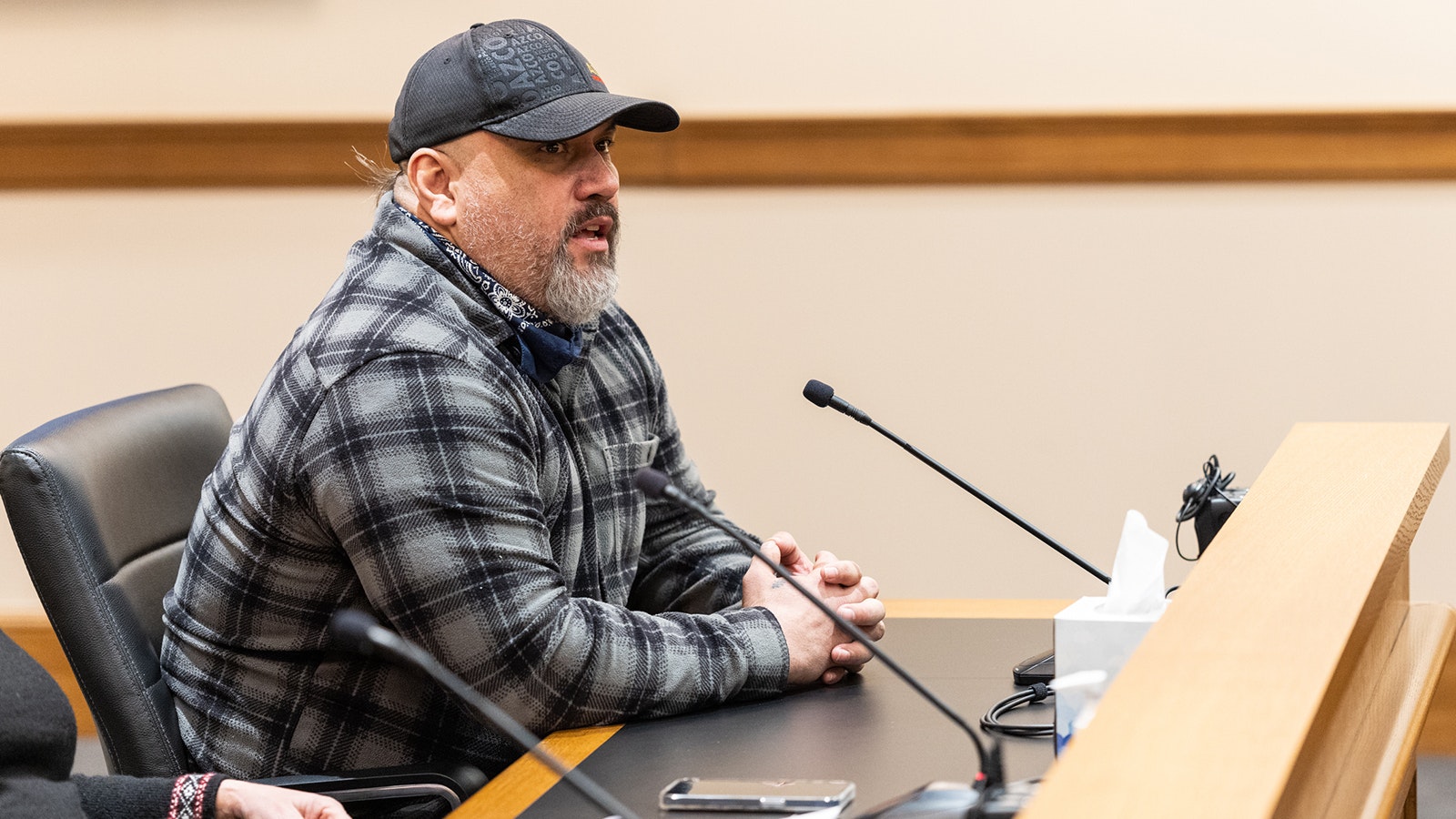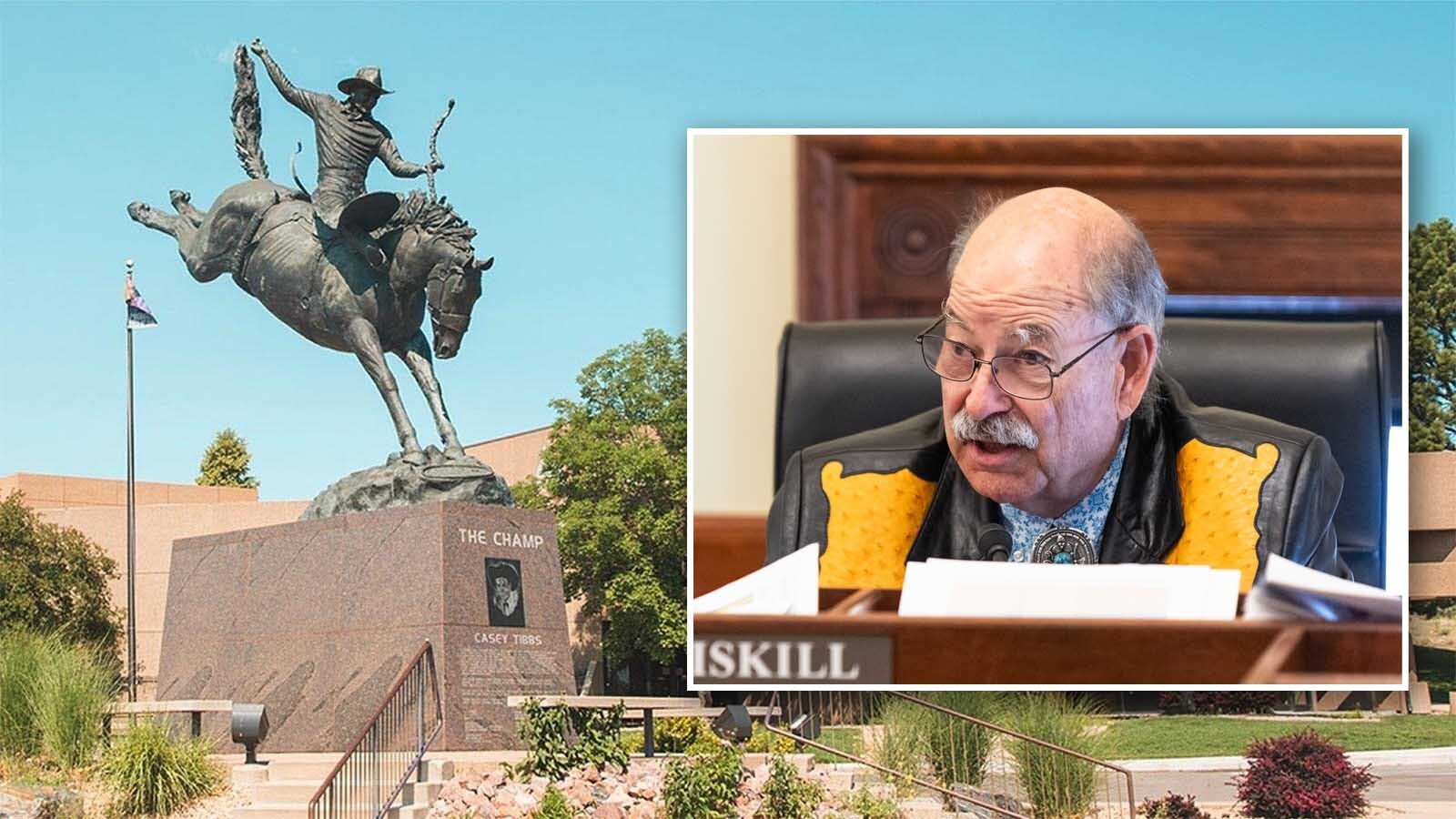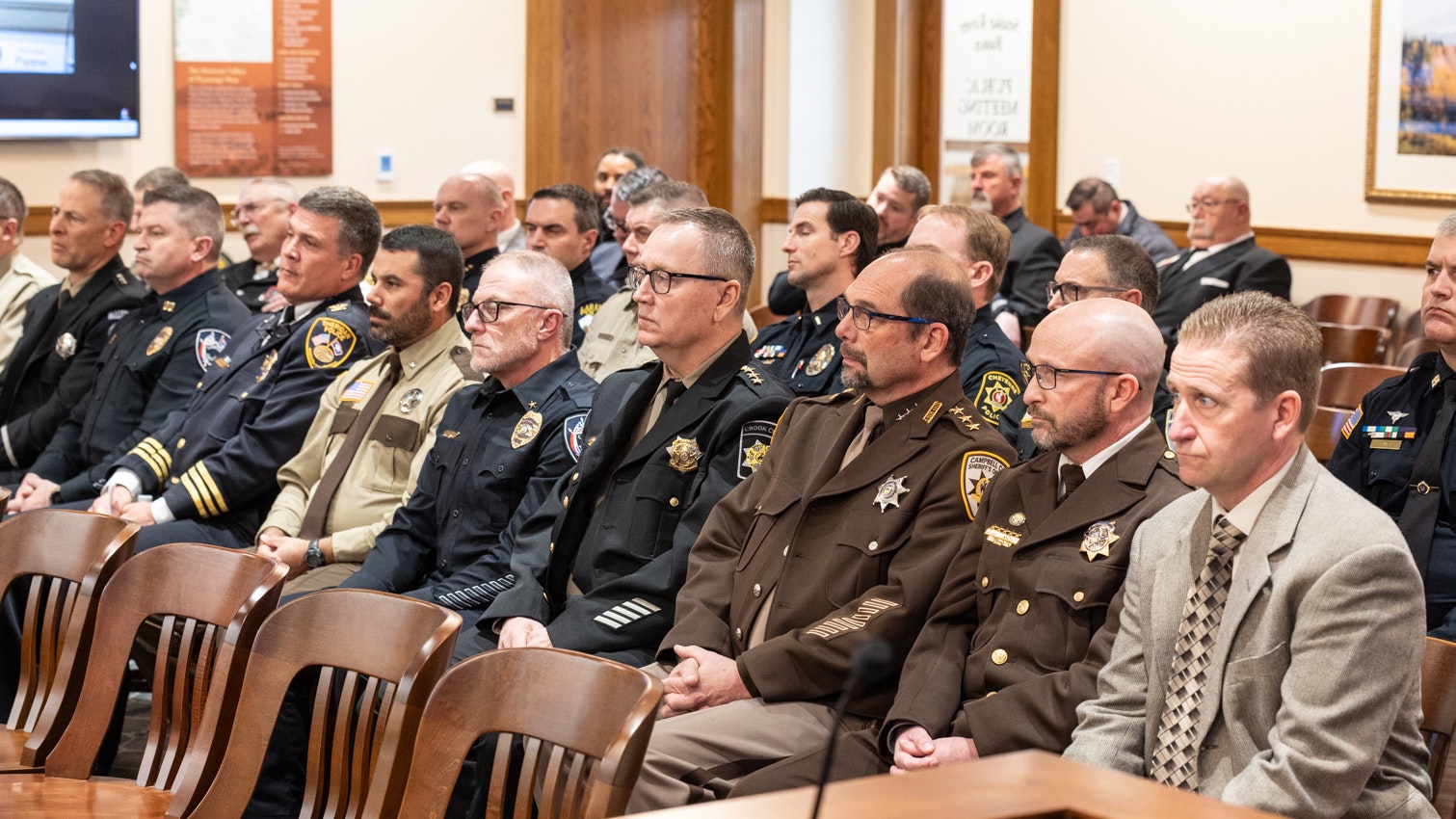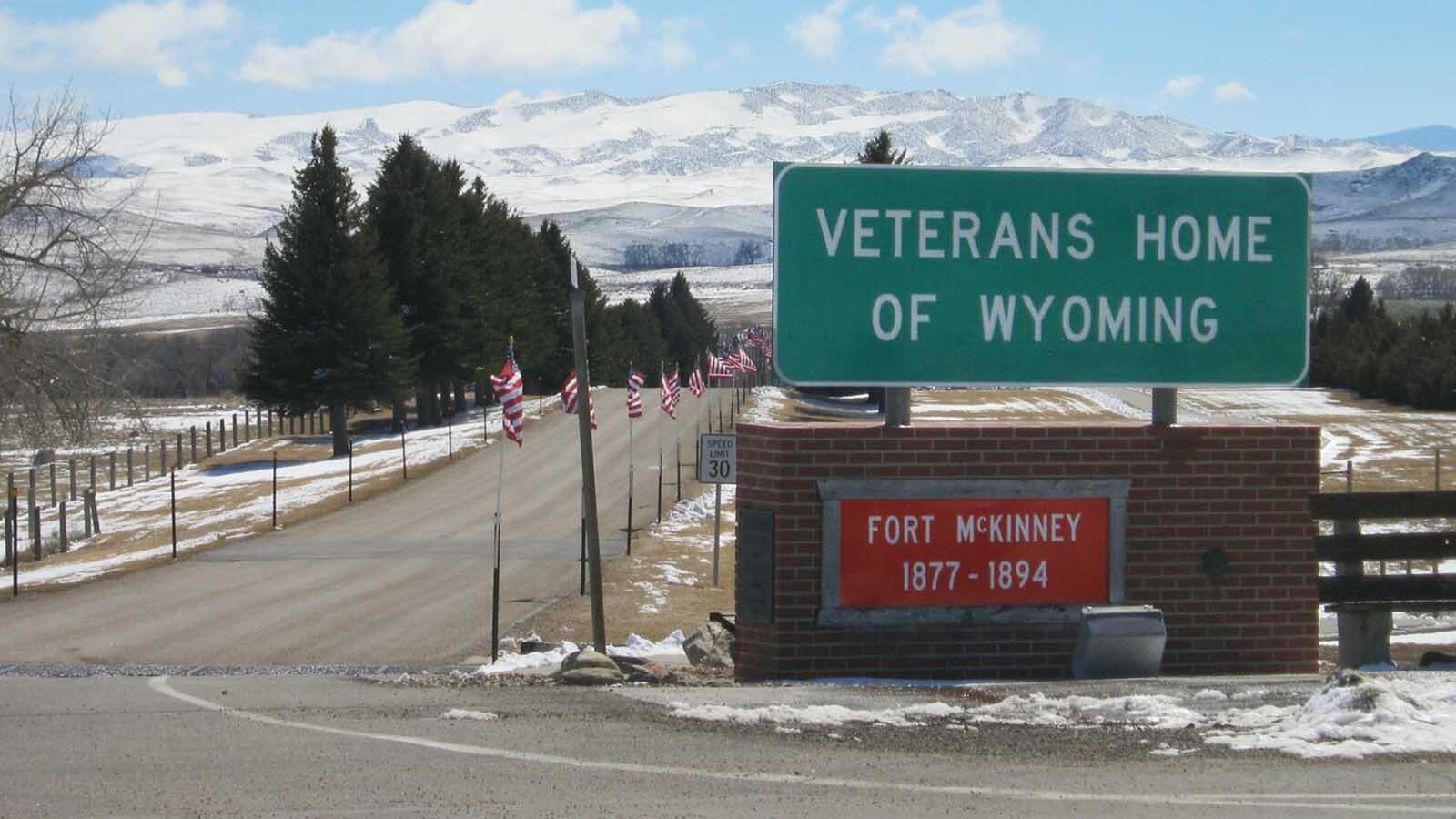More than 20 electricians, construction workers and plumbers crowded a committee room at the Wyoming Capitol on Wednesday to lobby lawmakers against legislation they said would hurt union workers in Wyoming.
The House Labor, Health and Social Services Committee still voted to pass Senate File 147, which would prohibit government entities including union-specific language in construction-related contracts and grants.
The bill is anti-union and unfairly alienates many who work construction-related trades, the opponents said.
“We already have a lot of things in place that prevent the unfair treatment of labor groups trying to get jobs,” said Adrian Munoz, a Cheyenne union welder fitter. “What’s basically come before the committee today is a bill that’s not been an issue.”
SF 147 would neither require nor prohibit state and local government entities from requiring a project labor agreement as a condition for winning contracts, but does prohibit those contracts from requiring the use of labor organizations.
State Sen. Jim Anderson, R-Casper, sponsored SF 147 and said his bill protects open competition and workers.
The committee voted 6-3 to pass the legislation.
A Worker’s Perspective
Munoz told the committee about how the world might have seen his dad, a heavy machinery worker and member of a union, as “another commodity,” yet the union didn’t.
“They took care of him so well that I felt like I could put my faith in them as well,” said Munoz.
While now unemployed, Munoz said he’s a welder and fitter who worked at HollyFrontier refinery for six years but left when the company decided to go non-union.
Although he said there are many non-union opportunities available in Wyoming, those jobs don’t come with the same pay or benefits as union jobs.
He has since had to find work outside his home state. While there are more job opportunities for union workers out of state, the distance of the opportunities sometimes puts a strain on his home life.
“Everything I do goes to build my future here,” he said.
PLAs
Project Labor Agreements were a major focus of Wednesday’s discussion.
PLAs are pre-hire collective bargaining agreements with one or more labor union that establishes the terms and conditions of employment for a specific construction project. Before any workers are hired, construction unions have bargaining rights to determine wage rates and benefits of all employees working on the project and agree to provisions of the agreement.
“Bid the job whether you’re a union shop or a non-union shop,” Anderson said. “Everybody bids the job, that’s what this bill says. Nobody can be excluded. With a PLA, that excludes the non-union shop.”
Tammy Johnson, executive director of Wyoming State AFL-CIO, spoke against the bill, saying it violates local governments, the University of Wyoming and the state’s community colleges from entering into “the right to contract.”
“We don’t like mandates at the federal level, I get that,” she said. “What this bill does on the state level is preclude union workers, the people who sit before you today, from having access to jobs.”
Johnson said the bill makes it harder for unions to operate in Wyoming.
Anderson said PLAs have been beneficial for companies in limited scenarios, but said the current presidential administration “has pushed it harder than other administrations have.”
Johnson disagreed, arguing SF 147. does not take a neutral stance against PLAs despite them sometimes being more beneficial and efficient.
“How does a bill like this, that calls out labor organizations specifically in the bill, how does that make it non-discriminatory and neutral?” she questioned.
Getting Ahead Of A Problem
In February 2022, President Joe Biden signed an executive order requiring project labor agreements on fully federal funded construction projects costing more than $35 million.
An amendment made to SF 147 states that if a Wyoming project is funded by a federal grant, the federal rules still apply when it comes to PLAs.
Anderson read a paragraph from a letter written by Gov. Mark Gordon and more than a dozen other governors opposing federal PLA mandates.
“The federal government continues to impose or encourage PLAs whenever possible,” Anderson said. “It is wise for our state to prevent any discussion of using PLAs on any project by passing this simple legislation.”
President Joe Biden’s order does not prevent states from receiving federal money on other projects if they do not use a PLA.
Few And Far Between
Brandon Ray, a national-level lobbyist for Associated Builders and Contractors, said the federal government has offered incentives to state governments to require PLAs on federally assisted projects, but PLAs as a whole haven’t historically been used in Wyoming.
Travis McNiven, a local lobbyist for ABC, said 23 states have passed legislation similar to SF 147. ABC has produced multiple pieces of literature speaking against the Biden mandate.
“It’s best practice that government shouldn’t be mandating one way or another,” McNiven said.
The only time Johnson said she is aware of a PLA being used on a state project in Wyoming was in the construction of the Buffalo Bill Dam and Reservoir in Cody, which was completed in 1910.
“If this isn’t a Wyoming problem, then why are we doing anything about it?” Munoz questioned.
But Katie Legerski, executive director of the Associated General Contractors of Wyoming, said in the building of the Wind River Job Corps Center in Riverton there was an initial desire by the federal government to use PLAs. She said Wyoming congressional involvement stymied those efforts.
Ray and Legurski said about 97% of Wyoming workers are non-union.
Randy Sewald, director of Cheyenne-based Encore Electric, said his company would not have been able to earn contracts for projects at the University of Wyoming, the Capitol and the Cheyenne Microsoft facility if PLA contracts had been in place to bid for the work.
“We hired as many Wyoming workers as we could to supply the crews, with sometimes as many as 200 people on the job,” he said, bringing a few shaking heads of disagreement from the audience. “None of the projects were done under a PLA. They knew it and so did we. It was fair and open competition.”
Because of Wyoming’s low population, Anderson said the state is “labor short,” creating a need to accept as many bids as possible for projects. Sewald said his company tries to hire Wyoming workers as much as possible and recruits in local high schools.
Easier To Hire Outside The State
Johnson said the state’s current laws already work against unions, making it easy for out-of-state employers to bring on out-of-state employees for Wyoming projects.
Johnson said there are important safety provisions built into PLAs. She mentioned how Wyoming has the highest rate of on-the-job deaths in the country, four times higher than the national average.
Wyoming is also a right to work state, meaning no worker can be forced to pay union dues.
“I don’t feel like in Wyoming, in a right-to-work state, that unions are being pushed down anyone’s throats,” Johnson said.
She also said bills like SF 147 make it harder for employers to get apprentice workers experience in the field. Munoz mentioned how his sister, who also testified, is working as an apprentice plumber but has struggled to find work in Wyoming.
“When she succeeds, I win,” he said. “And when we win, we all win.”
Rep. Mike Yin, D-Jackson, voted against the bill and mentioned how it only relates to construction work.
Cheyenne Republican Rep. Ben Hornok, who works in construction and voted for the bill, also noted this aspect and said he wouldn’t mind having it broadened to incorporate other types of business contracts.
“I wouldn’t mind looking at other labor organizations we could do the same with,” he said.
SF 147 must get through the House before it can head to Gov. Mark Gordon’s desk to be signed into law or vetoed. There have been a handful of similar bills to SF 147 brought over the last decade, but none have passed.





